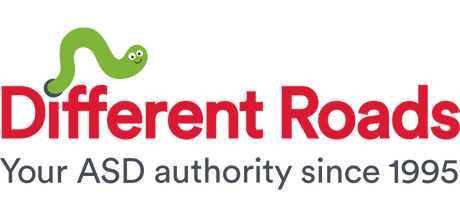It’s time for school! No, not our other book… actual school! What “school” looks like is likely much different in 2020 than we are accustomed. This includes whatever form “school” was taking for individuals diagnosed with autism spectrum disorder (ASD; e.g., at a school, in a room at their home, in a clinic-based setting). It is likely your child or your client diagnosed with ASD is spending instructional time on online platforms. So, how might the procedures and curriculum within the new book, The Autism Partnership Method: Social Skills Groups be adapted to these changes? Virtual social skills groups!
Much of the curriculum in the book and many of the procedures can be moved to an online platform with little to no modifications necessary. When running a virtual social skills group on the online setting the main room can be used for large group instruction, modeling, and practice. Breakout rooms can be used to arrange smaller groups working on similar or more specific skills. While this shift may occur with little to no modification it is important to really consider generalization of the skills acquired within a virtual setting (e.g., Zoom) to other settings (e.g., at the beach).
For others, making the shift to an online platform for a social skills group may be more difficult. In these situations, it may be necessary for an interventionist (if possible) or parent to be present during the social skills group. If an interventionist is possible (please follow all federal and local guidelines), they should take the shadow role (as described in the book). If an interventionist is not possible, a parent could fill this role to some extent. Parent coaching prior to and during the social skills group could occur via written information or in-vivo training.
When using the curriculum online it will be more important than ever to keep it engaging. If using video clips, take the time to find suitable clips from the child’s favorite show. When running the Cool vs. Not Cool™ procedure be “extra” not cool so that it’s more engaging coming through a computer screen. Overall, like mentioned in the book, planning and teamwork will be the key to success.
There are undoubtably numerous ways we have not considered here. Be creative, flexible, and keep your child or client’s interests, goals, and strengths in mind when making changes to the structure of a social skills group during Covid-19. If you or anyone you know would like consultation on setting up an online social skills group please contact info@autismpartnershipfoundation.org.
About The Author
Joseph Cihon, PhD, BCBA-D is the Co-Director of Research for the Autism Partnership Foundation. Joe received his bachelor’s degree in special education from Fontbonne University, master’s degree in behavior analysis at the University of North Texas under the mentorship of Dr. Shahla Alai-Rosales, Dr. Jesus Rosales-Ruiz, and Dr. Manish Vaidya, and his doctoral degree at Endicott College under the mentorship of Dr. Mary Jane Weiss. Joe has over fifteen years of experience working with children, adolescents, and adults diagnosed with autism spectrum disorder and other developmental disabilities in home, school, and community settings. His research interests include evaluating approach based interventions, shaping, increasing favorable interactions among children, their families, and interventionists, developing contingencies to promote generalization and maintenance, and improving mealtimes for selective eaters. Joe has published and served as a reviewer for several prominent journals and presented research at national and international conferences. You can reach Joe Cihon at jcihon@autismpartnership.com
